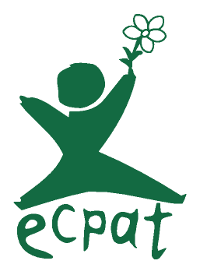Smuggling vs trafficking
Human trafficking is “the recruitment, transportation, transfer, harbouring, reception of a person, including the start or transfer of control over that person, in order to enable the exploitation (Article 433 of the Belgian Penal Code).
People smuggling means to help (…) a citizen who is not a national of a Member State of the European Union to enter or transit the territory of a State or to reside in it, in breach of the legislation of the said State, for direct or indirect financial gain”. (Article 77bis Law of 15 December 1980 concerning Access to the Territory, Stay, Residence and the Removal of Foreigners)
In both cases, it is considered an aggravating circumstance that the victim is a minor. Victims of trafficking and aggravated forms of smuggling have access to the same protection.
What forms does child trafficking take?
Sexual exploitation
Most victims are forced into prostitution, but some of them may also be used to produce child sexual abuse materials.
Besides, a number of girls become victims of loverboys. Loverboys use seduction as a recruitment technique. They spot vulnerable teenage girls, seduce them, manipulate them and then push them into prostitution. The strong emotional dependence ensures loveryboys a total control over their victims.
Victims of sexual exploitation may be Belgian as well as from foreign origin (Eastern countries, Nigeria, etc.).
Nigerian prostitution networks use voodoo rituals to exert control over their victims. During these rituals, the girls promise to repay the debt incurred for their trip. Nails, blood and hair are collected and kept by the criminal network. The victims do not dare to break the “pact” as they are scared for themselves and their families (illness, madness, death).
Economic exploitation
The victim working conditions are contrary to human dignity principles.
Main sectors:
- Small shops (bakeries, butchers)
- Agricultural activity
- Selling flowers or small objects
- Handcraft markets
- Restaurants
- …
Forced begging
Begging as such is not punishable in Belgium. But using a third party to beg for oneself is punishable. Thus, someone forcing a child to beg and asking for all his/her earnings could be prosecuted for human trafficking.
Trafficking for the purpose of criminal exploitation
Victims are forced to commit robberies (pickpocket, shoplifting, burglary etc.). Sometimes they are also forced to sell drugs. In theory, a person cannot be prosecuted for offenses committed when exploited. In practice, child victims of this type of exploitation are often considered as offenders.
A few indicators to spot victims
It is not always obvious whether a minor is a victim of human trafficking. Here are some things to give a second thought to:
- Does the minor possess identity documents?
- Did the minor engage a debt for the trip?
- What salary does he/she earn? Does he/she have to give it to a third party?
- Does he/she have freedom of movement?
- What is his/her housing like?
- Does he/she live at the employer’s?
- Does the minor know French or Dutch?
- Does the minor show bruises? Seems to have been threatened?
- Is the minor scared of authorities?
- Is he/she schooled?
- Does the minor have several phones or SIM cards?
- What’s his/her work equipment like?
- For how many hours does he/she work per day?
- Does he/she have an employment contract?
- Is the information provided about the identity and circumstances of the arrival in Belgium trustworthy?
- Has she/he been stopped by the police before?
- Does she/he live or works within “his/her” community?
- …
Detailed list developed by UNODC: https://www.unodc.org/documents/human-trafficking/HT_indicators_F_LOWRES.pdf
